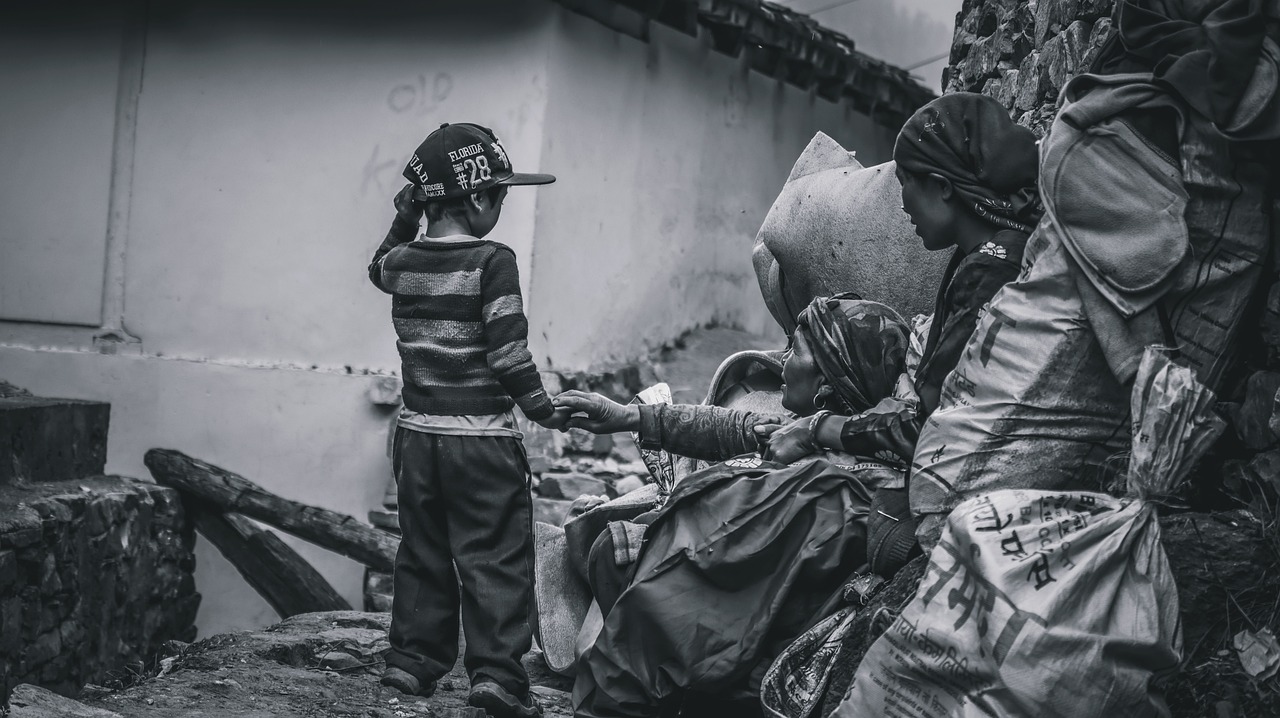
“Blossom” was in her early 30s when she was referred to Samaritana in 2013 by one of her neighbors who was a Samaritana trainee. When we first met her, she could not read or write—an inability that brought a lot of shame and insecurity in relating to others. During her initial participation in our fellowships, she preferred drawing to describe her thoughts and feelings in response to what was being discussed, only later sharing cautiously in small groups. As one who had a lot of experiences in being mocked and laughed at since she was a child, Blossom was careful in initiating conversations and building friendships with others. Slowly, Samaritana became the community her heart truly longed for where she could be seen and heard without being judged.

Her sense of insecurity in life, particularly in relating to others, stemmed from the rejection and abandonment she had when she was a child. Blossom was the fifth of twelve children. Her whole family lived in Bulacan until her parents decided to move to Samar without her when she was 7 years old. Her parents decided to leave her in the care of her father’s brother and his family. Blossom stayed with the family for only a month. Her uncle saw her as a burden, saying, “You are useless. There is nothing you can contribute to our needs.” Mercilessly, her uncle asked her to leave without any kind of support. “There was nothing I could do. I wondered in my heart and mind why, of all my parents’ children, I was the only one they left behind,” Blossom said.
For eight long years, she wandered the streets finding ways to survive—like picking up used plastic bottles that she could sell to have enough money to buy food. One day, a good Samaritan couple saw her and invited her to live with them as a helper and at the same time, to study. In school, a now 12-year-old Blossom was taunted by her classmates for being the oldest in first grade. Because of this bullying experience, she decided to discontinue her studies.

When she was 17 years old, she met and fell in love with a young construction worker. They decided to live together, later on staying with her partner’s family after giving birth to their firstborn child. Blossom thought that being with her partner’s family would give her the experience of a family she never had. But this was not so. She discovered that her partner would give all his income to his mother and leave nothing for her and their baby. She could not even afford to buy the necessities for her baby. Blossom decided to leave the relationship.
Homeless, she and her baby were allowed to spend the nights in a police station, sharing a jail room with a couple. Though they were assisted and fed by kind strangers and officers, Blossom knew she needed a job in order to live and survive. A friend invited her to work at a bar. In the absence of other economic options, she slogged away in bars every night, entertaining customers and drinking alcohol as part of the game. Later, she found out that in order to earn more, one must be willing to be taken out by a customer to a small cheap motel. Blossom never agreed to this more profitable option for fear of what might happen to her. After six months of shame and emotional distress, she left her work at the bar.
Blossom decided to seek help from her relatives in Bulacan. In response, her uncle sent her to her cousin in Fairview, and there, she learned how to cook and peddle peanuts for a living. Amid this newfound economic opportunity, her live-in partner showed up and tried to persuade her to give their relationship another chance. However, Blossom was determined to end their relationship for good.

As she pursued this new path, she met and fell in love with a man who became her second partner. They wanted to build a life together and start a family, so they rented a place for themselves, sharing and showing love for each other and their growing family of five children (in addition to Blossom’s first daughter). Despite this seemingly better situation in Blossom’s life, they struggled to make both ends meet. Her children also began to drop out from school one by one as Blossom and her second partner just did not see the importance of education. “If we were able to survive without formal education, it should be okay for our children,” they argued.
This was one area where we in Samaritana had to help them begin to value education for a better future for their children. Slowly, Blossom was convinced as she, too, with the help of volunteers, began to learn to read and write.
Blossom’s second partner is a responsible man; however, his work as a construction worker would only allow him to go home to his family once a month. His health also started to fail with tuberculosis. Just before the pandemic started, her children were starting to lose interest in school. One cousin suggested that they move out and sell the rights over the shack they owned in a poor community near Samaritana.
Today, Blossom and her entire family are living in Samar. Her partner has recovered from his sickness. Except for her oldest son who works with her for a family that owns a mineral water station, her kids are all in school and enjoying it.
Sadly, Blossom still feels isolated and unwanted by her mother and five siblings, despite her efforts to reconcile with them.
Samaritana continues to sustain its relationship with Blossom through online conversations. Looking back, she said that it is in Samaritana where she felt the love and acceptance that she never had with her nuclear family; the place where her life slowly blossomed to where it is now and where she is still growing.
“I attribute everything that I am now to Samaritana. It was where I learned how to read and write. Here, I gained a lot of economic skills – especially in cooking and in learning to relate to others without fear. Most of all, it is also here where I have become aware that God loves me unconditionally and that he continues to care for me and my own family.”

About Samaritana

Samaritana Transformation Ministries is a faith-based social welfare agency accredited by DSWD. Their mission is to assist women at risk and those in prostitution through a holistic approach, enabling them to lead productive lives with resiliency and dignity. They envision women in nurturing relationships, becoming whole, restored, and empowered in Christ, and helping to transform communities towards a society free from trafficking for sexual exploitation.

Angeline Castillo
Angeline Castillo is a mental health advocate and a program staff member of Samaritana. She is involved in the aftercare holistic training program of Samaritana as well as managing the Child Scholarship Program for the children of the women.





